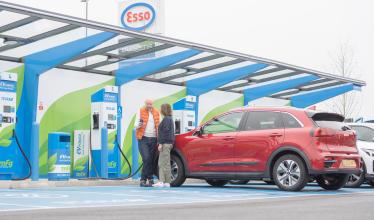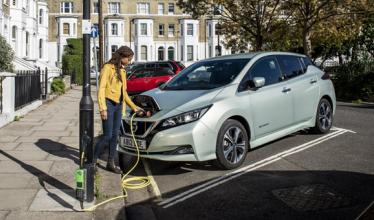A new charter aimed at improving electric vehicle (EV) charging experiences and accelerating adoption of EV ownership has been launched by the RAC and campaign group FairCharge.
It is the UK’s first charter for EV public charging, and is supported by Robert Llewellyn’s Fully Charged Show, trade body Recharge UK, and EV disability champion ChargeSafe.
The charter calls for improvements in reliability, transparency and accessibility, as well as the usability of the UK’s rapidly growing charging network. Indeed, FairCharge and the RAC are calling for the charter to become a minimum set of standards for charge point operators, government, local authorities and landowners.
Recommendations within the charter include:
- A 99% charger reliability guarantee
- Clear information on the live status (working/not working) of charge points for consumers
- A 48-hour repair target for non functioning charge points
- Signage on all major roads and motorways displaying rapid and ultra-rapid charge points
- Clearly displayed price per kWh
- Parking operators and local councils to make T&C’s clear
- Easier payment methods to be provided, including contactless payments
- Availability of digital receipts with VAT element
The charter also calls for chargers to be located in safe, well-lit areas, and be accessible to all drivers, regardless of physical abilities
“I’ve this week written to the new energy secretary urging her to support this campaign and help boost the UK’s energy independence and security,” said FairCharge founder, Quentin Willson.
“We’ve produced this charter after talking to hundreds of EV drivers and it represents their wish list for building a world-class public charging network.”
“Government, operators, councils, and local authorities should reflect on what these pioneering drivers of EVs have told us,” Wilson continued.
“Only by carefully listening to those who have already driven electric cars for years will this country get the charging infrastructure and EV policies to be fit for the future.”
The charter follows recent news of draft regulations that were introduced to Parliament earlier this summer. The Public Charge Point Regulations 2023 represent a commitment to improve the consumer experience at public charge points.
“From easy payment through to chargers you know will work when you get to them, these are issues we know drivers have highlighted for many years,” said Melanie Shufflebotham, Co-founder & COO at Zapmap.
“Zapmap already provides live status and availability data for over 75% of the 48,000+ charge points mapped within the Zapmap app and web map, thanks to live data partnerships with charge point operators across the country.
“Whether it’s showing the live status of charge points – if they are in use, in service or otherwise – filters where EV drivers can identify contactless chargers, or our cross-network payment solution Zap-Pay, Zapmap has led the way in identifying and addressing the needs of EV drivers.
“We were pleased to see these concerns being laid before Parliament earlier this summer, and it is equally encouraging now to see such ambition from FairCharge and the RAC with this first EV charging charter. We support this charter and, as improvements are made, our aim will be to reflect them in the Zapmap app.”
“As the market for electric cars really starts to open up in the UK, it’s vital we have enough public chargers in enough locations to make charging as straightforward as possible,” said RAC spokesman, Rod Dennis.
“But quality is as important as quantity: drivers will quickly become frustrated if they discover chargers that aren’t working, or they can’t clearly see how much they’re going to pay before they plug in.
“And for those with specific accessibility needs, having chargers that meet the new British Standard is absolutely vital.
“This charter – a first for the UK – addresses all these issues and more which is why we’re calling on the whole sector to get behind it and help deliver an electric car charging experience that puts drivers first.”
FairCharge, the RAC and Zapmap continue to campaign for a reduction in VAT on public charging from 20% to 5%, and the charter includes a recommendation to the Treasury to reduce the cost to consumers without driveways who rely on public devices.
The charter can be viewed on and downloaded from both the RAC and FairCharge websites.



